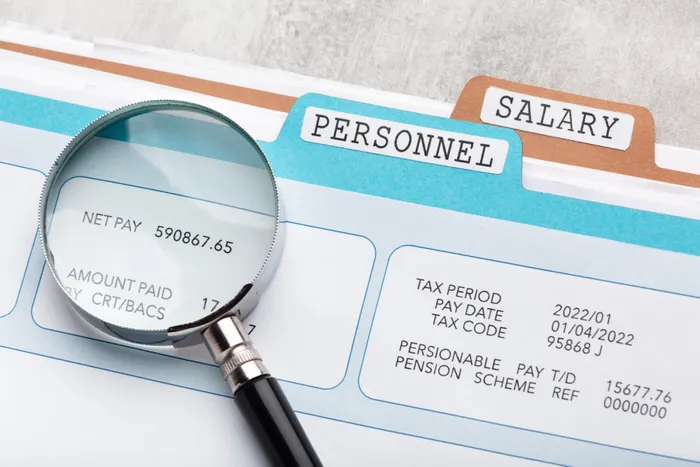Point of view: why the Fair Pay Bill could transform recruitment practices in South Africa

The Fair Pay Bill aims to revolutionise recruitment in South Africa by prohibiting employers from asking for salary history, promoting transparency and equity in pay practices. This article explores the implications of the Bill for job seekers and employers alike.
Image: Freepik
Have you ever been asked to submit your payslip by a prospective employer, before you’ve even sat down for the interview? For many South Africans, it’s a routine (and often frustrating) part of the job search. But that could soon change.
The recently tabled Fair Pay Bill aims to put an end to this outdated practice and usher in a more equitable era of recruitment. If passed, it would prohibit employers from requesting your current or previous salary history and instead require them to be upfront about what they’re willing to pay. In short, transparency becomes the rule, not the exception.
According to Norma Mazibuko, partner, and Amandla Makhongwana, senior associate at Bowmans South Africa: “This is a game-changer for both employers and job seekers and, if passed, is set to reshape recruitment, pay practices, and workplace culture across the country.” That statement isn’t just hopeful, it’s a challenge to long-standing hiring norms.
Mazibuko and Makhongwana say South Africa isn’t alone in rethinking how pay is structured. The European Union’s Pay Transparency Directive is set for roll-out by June 2026, while several US states have already banned questions about salary history. The trend is clear: the world is moving towards fairer pay, and we’d be wise not to be left behind.
What’s powerful about the Fair Pay Bill is its emphasis on the root causes of inequality. Historically, linking new salaries to previous ones has trapped many, especially women, the youth, and people from marginalised communities, in a cycle of underpayment. Start low, stay low. If each new offer is based on an already disadvantaged benchmark, how do you ever break the cycle?
And yet, in many HR departments across the country, this remains standard practice.
Some would argue that knowing a candidate’s pay history helps assess market value or avoid overspending. Yet this line of thinking contradicts the spirit of the Employment Equity Act, 1998 (EEA), and does little to close pay gaps. As Mazibuko and Makhongwana point out, the Bill “is in line with this growing movement towards increased pay transparency.”
It also reframes the conversation entirely: instead of asking what you used to earn, employers are being nudged to ask, what is this role worth, and what can this person bring to it?
And merit-based pay? It thrives under this model because decisions are no longer anchored to arbitrary past figures but built around skills, potential, and responsibility.
Key Highlights of the Bill:
- No more salary history questions: Employers may only consider past pay if a formal offer has already been made and the candidate initiates the disclosure.
- Pay ranges must be advertised: Vague terms like “market-related” will no longer cut it. Candidates will know upfront what the job is worth.
- Transparent communication: Employees will be able to discuss pay openly, breaking down taboos and secrecy.
- Documented pay structures: Employers will need clear records of salary bands and justifications for pay decisions.
It’s not just about compliance. It’s about modernising how we talk about pay and fairness. As employment law experts at Cliffe Dekker Hofmeyr (CDH) notes, the EEA “aims to eliminate unfair discrimination and implement policies that correct historical disadvantages experienced by black people, women, and people with disabilities.”
Yes, some employers may face new challenges: assessing value in specialised sectors without historic anchors, or losing the upper hand in salary negotiations. But perhaps it’s time we stopped treating equity as a burden and started seeing it as an investment.
Another promising ripple effect of the Bill is how it subtly intersects with broader conversations about the difference between minimum wage and a living wage. Is a legally defined minimum enough to cover housing, food, transport, and school fees? Or should we reframe wage structures entirely to reflect dignity and sustainability?
The Fair Pay Bill invites employers and policymakers to ask these deeper questions.
If enacted, this Bill will be more than legislative housekeeping. It will challenge the status quo, level the playing field, and build stronger trust between employers and the workforce. And in a country still working toward economic justice, that shift is not only overdue, it’s necessary.
* Maleke is the editor of Personal Finance.
PERSONAL FINANCE